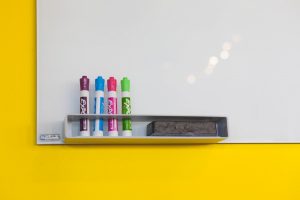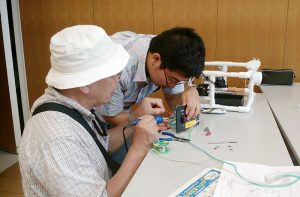During this academic year, as well as teaching through a pandemic, I have been working on a PCAP course (Postgraduate Certificate in Academic Practice). A few months ago, as part of the assessment of this, I had to write a number of reflective case studies about my work. These were linked together with a reflective introduction which was quite heartfelt, looking very briefly at the experience of pandemic teaching as a new starter in the context of established theories/models about early academic life. I’m not wholly ashamed of that introduction and I thought it might be of more general interest, and so I’m posting it here with minor edits. It is, of course, very basic: I am no expert in this area and make no claims to novel insight!
The early years of a lecturer’s first permanent role are generally expected to be hard, for multiple reasons: the new academic is coming to understand their new role and identity (Simmons, 2011, Wilkinson, 2018) while also learning the systems of their new institution and, often, developing a large amount of new teaching material. Kugel (1993) described new lecturers initially focusing on self, and then subject. Only later do they shift to considering students, and hence transition from a teaching-led to a learning-led way of thinking – which in turn leads to consideration of more sophisticated pedagogies.
Covid-19, and the resulting emergency shift to online teaching, has added to this load. Watermeyer et al (2021) speak, based on a large survey, of “academics bruised by their experience of emergency online transition… A story of trauma in the face of… profound professional and personal disruption… Of self-concept on trial and in tatters”. The emergency introduction of blended learning has upended Kugel’s progression by forcing staff who are in their first year of teaching, who are still developing self and subject knowledge, to engage very firmly with learning-led approaches. It is not clear whether this is beneficial for students, but it has surely increased the level of rapid adjustment and assimilation of ideas that Simmons and Wilkinson described.
This research feels quite pertinent to my own situation as a new starter. Much of the material that I have been adapting for emergency online learning is material that I have never taught before, and I have been learning to navigate the systems of a university in flux without any knowledge of how those systems work in normal times.
Goffman, as cited & described by Wilkinson (2018), discussed university teaching through a theatrical metaphor. He described “backstage” contexts in which lecturers can stop performing, and “stage talk” where they discuss performance techniques with colleagues. Wilkinson discussed differences in how much backstage space is available for a woman in a male-dominated field, but it is also interesting to consider how these concepts may differ – and how this might affect the development of professional identity – in a year when lecturers are working from home, and are connected to students and peers only during clearly designated periods when their webcams are on.

 This term, in addition to my modelling work at Marine Scotland, I’m the instructor for two masters modules at ICIT (Heriot-Watt’s Orkney campus). This is my first experience of teaching, beyond the occasional seminar here and there, and I’m really enjoying it. I have a small group of interested students, who want to be there (I realise that this is a privilege of teaching postgrad), who ask intelligent questions… and that makes it really rewarding.
This term, in addition to my modelling work at Marine Scotland, I’m the instructor for two masters modules at ICIT (Heriot-Watt’s Orkney campus). This is my first experience of teaching, beyond the occasional seminar here and there, and I’m really enjoying it. I have a small group of interested students, who want to be there (I realise that this is a privilege of teaching postgrad), who ask intelligent questions… and that makes it really rewarding.